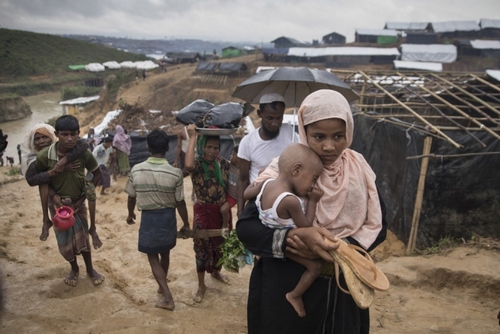Rohingya refugee crisis: Humanitarian partners continue to scale up response as refugee numbers approach 430,000
In the last three weeks, nearly 430,000 Rohingya refugees have fled violence across the border from Myanmar into Bangladesh. Refugees have arrived exhausted, hungry and traumatized by their weeks-long ordeal. Some have arrived with injuries caused by gunshots, fire and landmines. Thousands paid extortionate fees to make risky crossings from Myanmar in small boats, and dozens of people reportedly drowned as a number of overcrowded boats capsized.

Bangladesh currently hosts more than 700,000 Rohingya refugees, but this number continues to increase daily with new arrivals. Humanitarian needs are considerable and growing rapidly.
The majority of shelters in low-lying areas are flooded due to heavy rain, which is expected to continue in the coming days. This is exacerbating the situation, as sanitation services were already limited, and there is now an increased risk of disease outbreaks in densely populated areas.
Humanitarian partners continue to deliver basic food assistance, shelter, water, emergency latrines, psychosocial support and informal education to Rohingya refugees, but gaps remain enormous and urgent needs are still unmet.
The United Nations initially appealed for US$77 million to deliver life-saving assistance to more than 300,000 Rohingya refugees. This plan is being revised upwards as more refugees arrive and humanitarian needs continue to increase.
Source: UN Office for the Coordination of Humanitarian Affairs
- 280 reads
Human Rights
Fostering a More Humane World: The 28th Eurasian Economic Summi

Conscience, Hope, and Action: Keys to Global Peace and Sustainability

Ringing FOWPAL’s Peace Bell for the World:Nobel Peace Prize Laureates’ Visions and Actions

Protecting the World’s Cultural Diversity for a Sustainable Future

Puppet Show I International Friendship Day 2020

